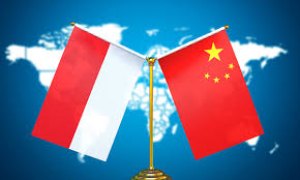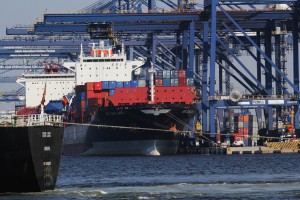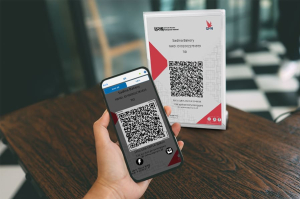Gunung Raja Paksi allocates IDR 328 billion Capex for 2023
Steel plates producer PT Gunung Raja Paksi Tbk (GGRP) has allocated IDR 328 billion of capital expenditure (Capex) for 2023. The company will use the Capex to support the production of high-quality steel.
Established in 1970 in Medan, North Sumatra, as PT Gunung Naga Mas, the company changed its name to Gunung Raja Paksi in 1991. It is part of the Gunung Steel Group, one of Indonesia's biggest private steel companies. GGRP focuses on producing hot steel, beams and steel sheets. Its factory is located in Cikarang, West Java, on a more than 200 hectares (Ha) plot of land. It produces 2.2 million tons of steel annually. Its markets include domestic and international markets, with over 30 countries worldwide. The company also provides other services besides producing steel, such as a plate service center for cutting, drilling, shearing and stamping.
Focusing on sustainable production
Garuda Raja Paksi is focusing on the development of high-quality steel in 2023 by using its Capex to add support features to enhance the quality of steel and also becoming an environmentally friendly company.
Company Finance Director Roymond Wong said during a public expose session on December 15, 2022, that "the prepared Capex also includes the construction of solar panels as part of GGRP's efforts to become a more environmentally friendly company".
According to Wong, the 2023 Capex is considered smaller than the 2022's Capex. The company will try to gradually increase the Capex, depending on the situation. It is also possible that GGRP will adapt its Capex to fit the needs of opportunities in the market.
The company has estimated that its sales in 2022 would reach over US$ 972 million, a 34.66% increased compared to last year's sales of US$ 721.81 million. However, it also predicted that the 2022's profit would decrease by 9.68% to US$ 56 million, compared to 2021's of US$ 62 million.
According to President Director Abednedju Giovano Warani Sangkaeng, the positive work rate of the company is the result of its commitment towards the environmental, social and governance (ESG). Through its commitment, the company published a guidebook on how to deal with climate change and social issues as key steps for the company's sustainable steel production.
As part of Indonesia's commitment to net zero emission (NZE) by 2060, the company will also pursue to help the country realize the NZE mission of sustainability. As part of this mission, GGRP has transformed the production of steel toward low carbon steel production, such as green steel transformation, by using environmentally friendly fuels, the use of green energy and increasing the efficiency of natural resources.
"We have taken various steps, such as collaborating on a solar panel project, which will be a combination of a roof, floating and ground-mounted solar panels that will help decarbonize," Sangkaeng said as quoted by Kontan.co.id.
Risk in steel industry
According to steel distributor SMS Perkasa website in 2021, steel industry has been facing a big problem in the very high number of imports of raw materials.
This problem was due to relatively low consumption index, low global competitiveness whereas the potential market was being controlled by foreign companies. The COVID-19 pandemic has driven low demand for steel in various countries to be low. The increasing threat of cheap steel imports from China, Japan and South Korea has also created panic in the domestic industry in several countries, including Indonesia.
Already have an account? Sign In
-
Start reading
Freemium
-
Monthly Subscription
30% OFF$26.03
$37.19/MonthCancel anytime
This offer is open to all new subscribers!
Subscribe now -
Yearly Subscription
33% OFF$228.13
$340.5/YearCancel anytime
This offer is open to all new subscribers!
Subscribe now






